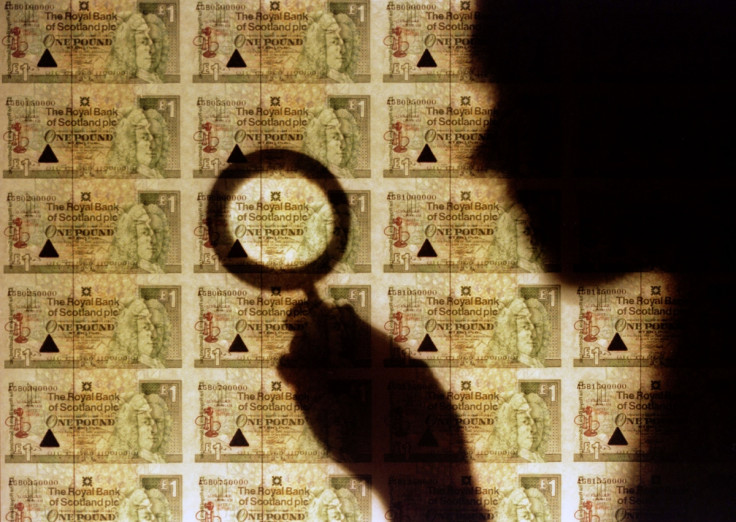Scottish Independence: Tories, Lib Dems and Labour Unite to Demolish Scotland's Currency Union Hopes

Senior officials from Britain's main political parties - the Conservatives, Liberal Democrats, and Labour - will unite in a bid to demolish the Scottish National Party's promise that an independent Scotland will keep the pound.
The SNP, led by Alex Salmond, is pushing for a yes vote in the September independence referendum, but has continually told voters that it is likely that the country will retain the pound.
The UK Chancellor George Osborne has already said that a British currency union is "nearly unworkable" and, late on 11 February, Prime Minister David Cameron hinted that his Tory right-hand man was developing an argument to counteract Salmond's promises.
"The chancellor will be discussing this later in the week. I think it would be very difficult to justify a currency union post-independence," said Cameron at a Downing Street press conference.
But I think it is very important that we set out these arguments in a very clear and rational way."
Meanwhile, Liberal Democrat chief secretary to the Treasury Danny Alexander, the and Labour's Ed Balls is tipped by media sources to be gearing up to deliver a similar message to Osborne.
Scottish people will vote in an independence referendum in September this year and will be asked the straight "yes/no" question: "Should Scotland be an independent country?"
What the Officials Say
Cameron: "We would be deeply diminished without Scotland."
"If we lost Scotland, if the UK changed, we would rip the rug from under our own reputation. The plain fact is we matter more in the world together."
Osborne: "I think that, frankly, Salmond's claims about the currency were pretty effectively demolished by the governor of the Bank of England.
It was a very non-partisan technical speech from a Canadian citizen, who pointed out that the conditions for a successful monetary union require the ceding of sovereignty and the creation of a banking union.
"That is why I said last year in Glasgow that I thought it was unlikely that a workable monetary union could be created. I will have more to say on the subject over the coming weeks."
Balls: "Salmond cannot continue to casually claim that Scotland could keep the pound. He simply cannot make that promise because it would take both sides to agree.
"The only way to guarantee the pound is to stay in the UK."
Scotland's Secretary of State Alistair Carmichael: "Independence means leaving the United Kingdom's monetary union.
"The only way for Scotland to be sure of keeping the UK pound as it is now is to stay in the United Kingdom ... No one should vote for an independent Scotland on the basis that they will get to keep the UK pound sterling."
Andrew Tyrie, chair of the Parliamentary Commission on Banking Standards: "A British monetary union would need something dramatically tougher than euro zone rules.
"So tough that on both sides of the border, if fully explained, I'm confident our respective electorates would not want it."
Bank of England Governor Mark Carney: "In a monetary union between an independent Scotland and the rest of the UK the two parliaments would have to agree on whether fiscal rules were sufficient or whether similar risk-sharing mechanisms were necessary.
"Fiscal stabilisation is particularly important in a currency union because it helps mitigate the loss of exchange rate flexibility.
"But being in a currency union can amplify fiscal stress for individual nations, limiting their ability to perform this valuable role just when it is most needed. So it makes sense to share fiscal risks across the whole currency area.
"A localised shock is less likely to stretch the fiscal position in a larger more diversified currency area, especially if it shifts demand between different parts of the area."
© Copyright IBTimes 2025. All rights reserved.






















